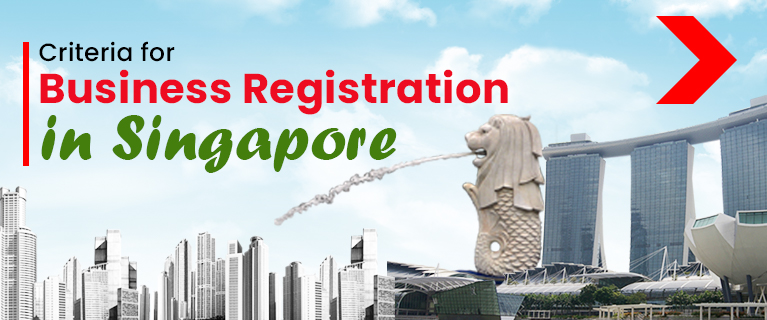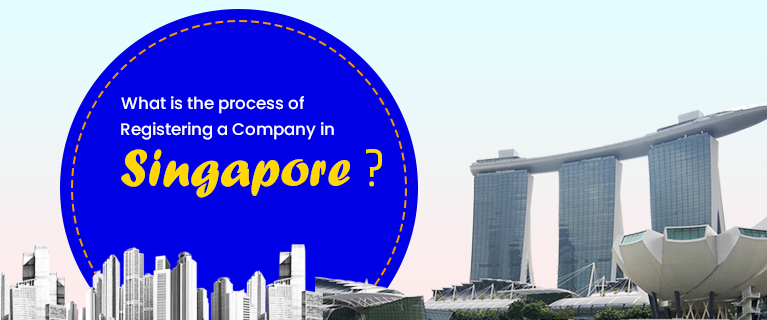Criteria for Business Registration in Singapore
Singapore is an attractive option for Indian entrepreneurs wishing to extend their operations abroad. The country is well-known for its business-friendly atmosphere, outstanding infrastructure, and welcoming government regulations. Singapore is also a worldwide commerce powerhouse with a sophisticated financial and judicial system.
Singapore's reputation as a business-friendly hub is a primary magnet for entrepreneurs. The streamlined processes for company registration, permits, and licenses minimize bureaucratic hurdles, allowing entrepreneurs to focus on their core activities. The efficiency of these administrative procedures expedites the establishment of businesses, enabling swift market entry and operational initiation.
Read also this -: What is the process of Registering a Company in SingaporeWhen considering establishing a company in Singapore, it's essential to be well-versed in the prerequisites for Business Registration in Singapore:
1. Company Name:
The foremost step in Singapore Business registration is selecting a unique name. The name shouldn't already be in use by another entity, and it must adhere to trademark and copyright regulations. The Accounting and Corporate Regulatory Authority (ACRA) website offers a tool to verify name availability.
2. Directors:
A Singaporean company must appoint at least one director, who can be a Singaporean citizen, permanent resident, or hold an Employment Pass. The director should be 18 years or older, devoid of bankruptcy or criminal convictions. Foreign individuals aspiring to be directors need to acquire an Employment Pass.
3. Shareholders:
At least one shareholder is obligatory, with a maximum limit of 50 shareholders. Shareholders can be individuals or corporate bodies, and they don't necessarily have to be Singapore residents. Directors can also be shareholders.
4. Company Secretary:
Within six months of incorporation, a Singapore company must engage a company secretary. This individual must be a Singapore resident and can't be a director or shareholder.
5. Registration Address:
The company must have a physical registered address. This address is used for official correspondence, record-keeping, and register maintenance.
6. Paid-up Capital:
A minimum paid-up capital of S$1 is required, which can be increased after formation.
7. Documents of Incorporation:
To begin Singapore Business registration, gather and submit necessary documents such as director and shareholder information, approved company name, company registration form, Memorandum and Articles of Association, company secretary details, business licenses or permits, and bank account information.
8.Fees for Registration:
The Fees for Singapore Business Registration process include name reservation, incorporation, and the production of the Certificate of Incorporation. The overall cost varies depending on the type of business and the services required.
Singapore's exceptional quality of life further entices entrepreneurs. The city-state's modern infrastructure, healthcare facilities, educational institutions, and vibrant cultural scene create an appealing environment for both entrepreneurs and their families.
In summation, entrepreneurs prefer Singapore Business Registration to register their businesses due to its business-friendly ecosystem, strategic location, supportive government policies, robust legal framework, access to funding, diverse talent pool, and high quality of life. These factors collectively position Singapore as a compelling destination for entrepreneurs seeking to establish and grow their ventures on the global stage.




Comments
Post a Comment